Mumbai: Before the start of the 2016 Mumbai Marathon, not many knew Nitendra Singh Rawat. But when the race began on a slightly chilly Sunday, everyone noticed Rawat. It was simply tough not to.
After all, how many Indian marathoners do you know who run sporting designer sunglasses and an even trendier ponytail?
By the time the race ended, Rawat had proved to everyone there was substance backing that style: the army man had broken the Indian course record after finishing the race in 2:15.18 secs.
The result not only propelled him into the national consciousness but also raised hopes that an Indian could finally do the nation proud at the marathon in Rio Olympics later that year.
But it was not to be. Rawat pulled the hamstring in both his legs in the run-up to the race and could only finish 84th — a result he calls dismal — with a timing of 2:22.52 secs.
Anyone in his place would have been chuffed at having finished the race despite the injuries. But not Rawat, who had bigger expectations from himself.
“After the race, some people tried to cheer me up by saying I had virtually run the race on one leg as one of my hamstrings was hurting really bad. It was difficult for me to even get up or sit without feeling a twinge of pain shoot up my leg,” Rawat says ahead of the Sunday’s marathon. “But when you finish that far away from the target you have set yourself, there can be no consolation, irrespective of what I did with the hand that I was dealt with.”
The Uttarakhand-born runner also faced criticism on social media, that was demotivating, to say the least.
This led Rawat to make a break from social media as he withdrew into his shell even as he recovered from the physical injury and the mental anguish.
Describing the struggle to come back from his injury, Rawat says, “It was very difficult to start rehabilitation because I had reached a level and then I got injured and had to do it all over again. It was a struggle.”
Rawat says he spent more than a year training alone in Bengaluru. An important aspect of the rehabilitation process for him was strengthening his hamstrings to give them more power. For two months, Rawat trained alone in the morning and evening while working on his hamstrings under physio Yash Pandey during the day.
“I did a lot of dead weight lifting and leg curls and loads of other exercises which I don’t even remember the names of to strengthen my hamstrings,” says Rawat.
A month before the Delhi Half Marathon, Rawat shifted base to Ooty to boost his performance in the high-altitude conditions of the South Indian hill station. At the Delhi Half Marathon in November last year, Rawat marked his return in style by setting the course record for Indian men at 1:03:53.
The next target for Rawat is to compete at the Commonwealth Games in Jakarta this year — a tall order considering that the Athletics Federation of India has set the qualifying time at 2 hours and 13 minutes (something which the athletes participating at the Mumbai Marathon seemed unsure about). Rawat’s personal best is 2:15.18 secs.
But the Indian athletes this time around will have an international pacemaker running alongside them, which will help them attempt going close to the 2:13 mark.
“Running with an international pacer will be helpful. I ran with Gopi Thonakal in 2016, who was the pacemaker and it helped us cross the 2 hours, 15 minutes mark. If even one of us gets that mark of 2:13:00 tomorrow, it’ll only motivate the others to try and achieve it,” says Rawat.
During his time away from the sport, Rawat has seen his compatriots Gopi and Kheta Ram raise their profile. On Sunday, back in the city where he first made his name, Rawat will be eyeing a resurrection.


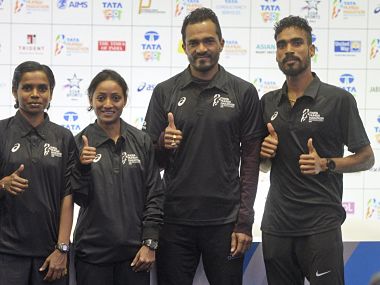)




)
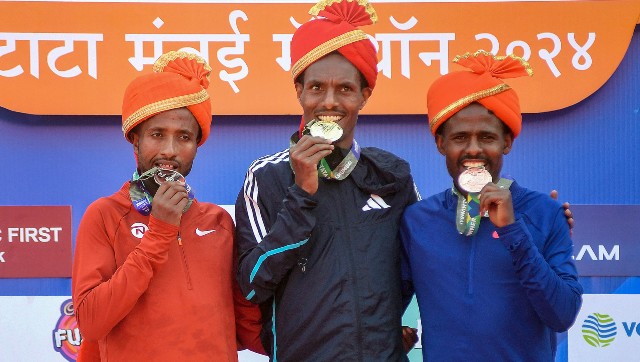)
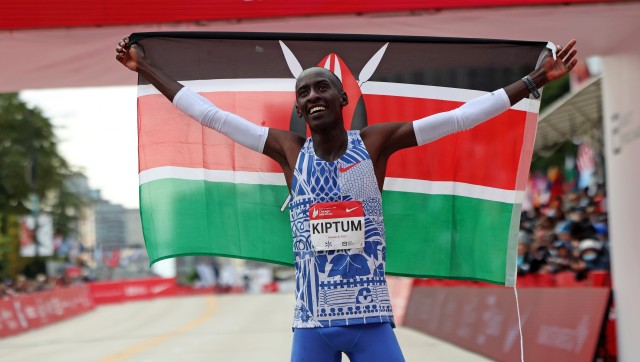)
)
)
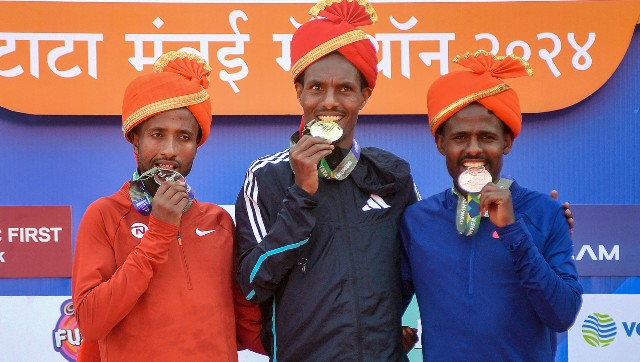)
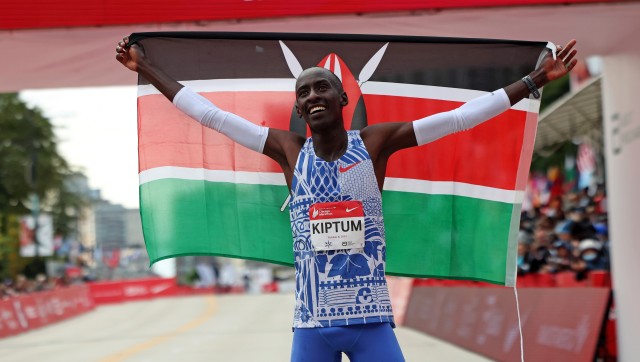)
)